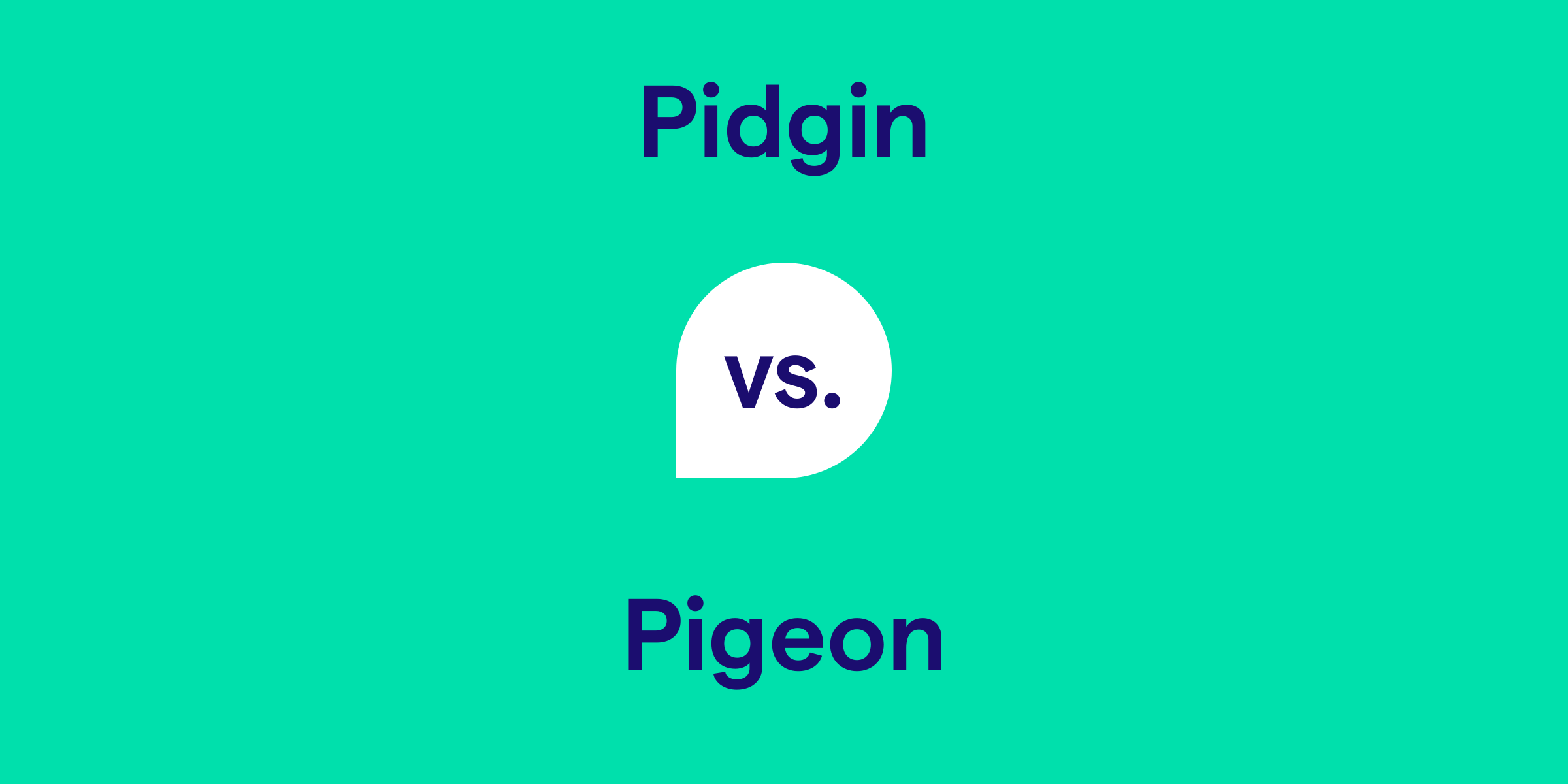Pidgin vs. Pigeon: What's the Difference?
While pidgin and pigeon are homophones, their meanings are worlds apart. A pidgin is a simplified form of speech that develops between two or more groups that do not have a language in common, typically used as a bridge for basic communication. On the other hand, a pigeon is a type of bird often seen in urban areas, known for its distinct cooing and ability to adapt to various environments.

How do you use the word pidgin in a sentence?
The word pidgin is used to refer to a simplified form of language that arises for the purposes of communication between speakers of different native languages. It often has a limited vocabulary, simplified grammar, and is not the native language of any speech community. It is most commonly used in contexts of trade, colonization, or migration where quick and effective basic communication is needed.
Examples of pidgin in a sentence
- During their travels, they encountered a local pidgin that combined elements of English and French.
- She studied the pidgin of the region and was fascinated by its evolution from a blend of multiple languages.
- Pidgin languages often emerge in port cities where traders from different parts of the world interact.
How do you use the word pigeon in a sentence?
The word pigeon refers to any of various birds of the widely distributed family Columbidae. It is frequently used to mention the common city pigeons, also known as rock doves, that are often found in urban environments. The term can be used in both literary contexts to symbolize peace or freedom and in everyday conversation when discussing the birds themselves.
Examples of pigeon in a sentence
- The park bench was covered in seeds, attracting a flock of hungry pigeons.
- Pigeons cooed on the rooftop, waking her up every morning.
- After the ceremony, they released white pigeons into the sky as a symbol of peace.
Pidgin and pigeon definition, parts of speech, and pronunciation
Pidgin definition:
A pidgin is a grammatically simplified means of communication that develops between two or more groups that do not have a language in common, which is used in addition to the native languages of the speakers.
Pidgin parts of speech:
Pidgin pronunciation:
Pidgin is pronounced as /ˈpɪdʒɪn/.
Pigeon definition:
A pigeon is any bird of the family Columbidae, especially the smaller species with rounded tails. It is known for its stout body, short legs, and cooing voice.
Pigeon parts of speech:
Pigeon pronunciation:
Pigeon is pronounced as /ˈpɪdʒ.ən/.
A pidgin is a grammatically simplified means of communication that develops between two or more groups that do not have a language in common, which is used in addition to the native languages of the speakers.
Pidgin parts of speech:
- As a noun, pidgin describes a type of language used for communication between people not sharing a common language. Example: The traders used a pidgin to barter goods.
Pidgin pronunciation:
Pidgin is pronounced as /ˈpɪdʒɪn/.
Pigeon definition:
A pigeon is any bird of the family Columbidae, especially the smaller species with rounded tails. It is known for its stout body, short legs, and cooing voice.
Pigeon parts of speech:
- As a noun, pigeon refers to a particular kind of bird common in many cities. Example: A pigeon perched on the windowsill, pecking at crumbs.
Pigeon pronunciation:
Pigeon is pronounced as /ˈpɪdʒ.ən/.
Pidgin vs. Pigeon in a nutshell
In summary, pidgin and pigeon share a phonetic similarity but not a semantic one. Pidgin denotes a hybrid language formed for the purposes of communication between speakers of different native languages, characterized by a limited vocabulary and simplified grammar. Pigeon, however, refers to a bird often found in cities, known for its adaptability and is a completely unrelated concept. Leveraging this understanding promotes clear communication, especially when the conversational context can give rise to ambiguity between the two terms.
Get AI Writing Assistance Wherever You Type
Make sure your vocabulary is on point and every punctuation mark is in the right place, no matter where you’re working. Grammarly works across more than 1 million websites and apps so you can improve your writing without copying, pasting, or breaking focus.

More Commonly Confused Words
Interest piqued? Pore (not pour) over other commonly confused words to help your writing reach peak (not peek) performance.